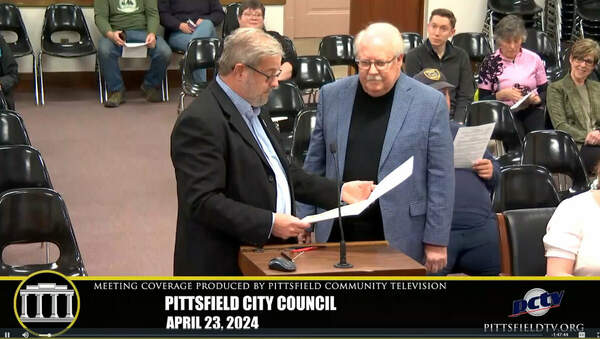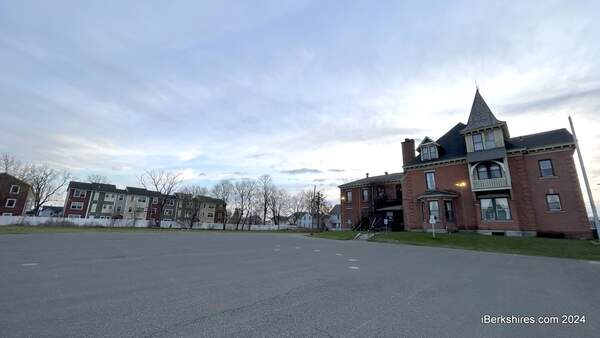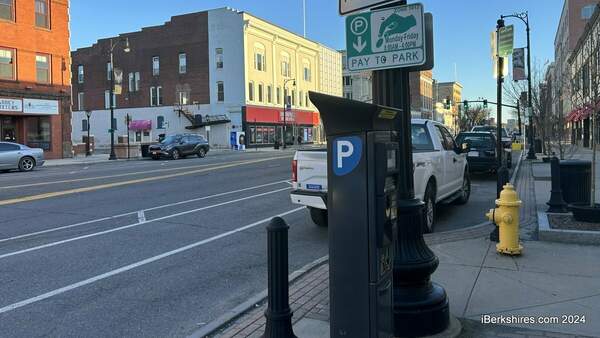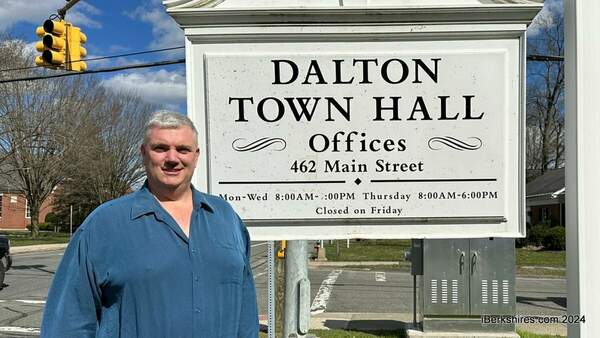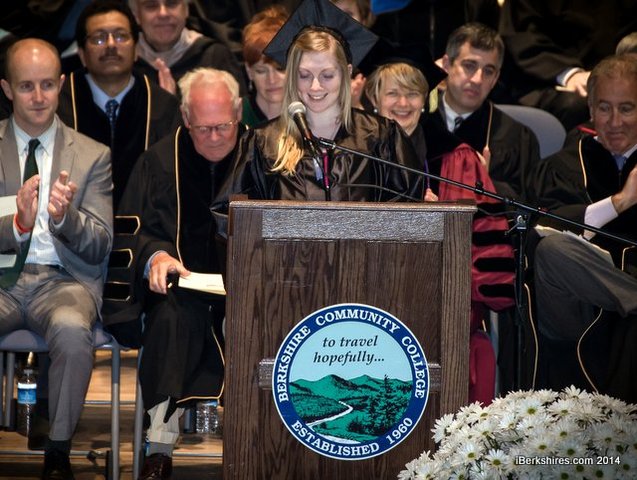
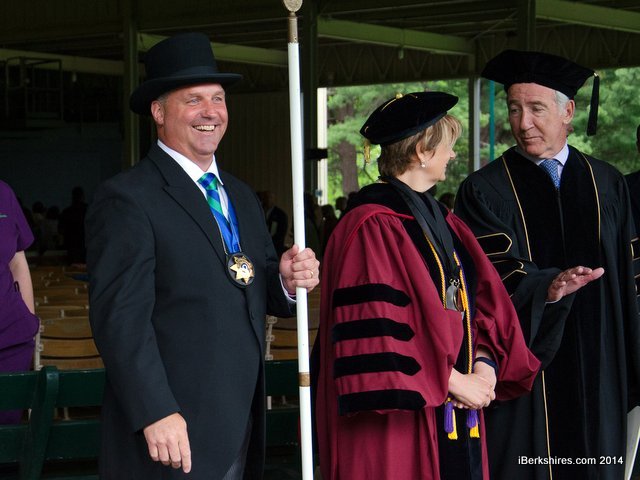
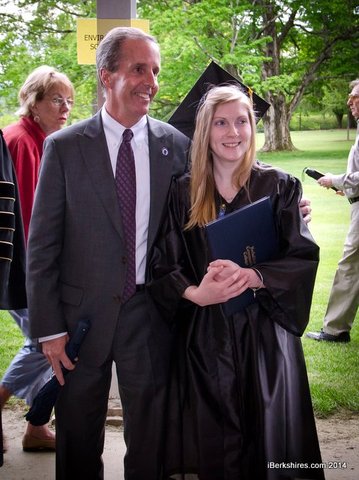
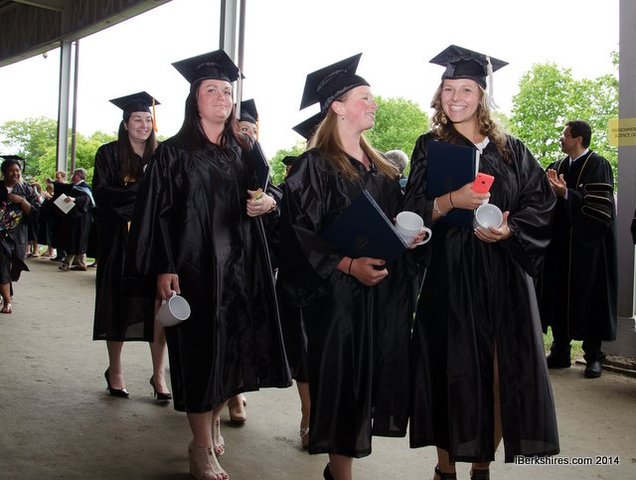
BCC Students Overcame Challenges To Graduate
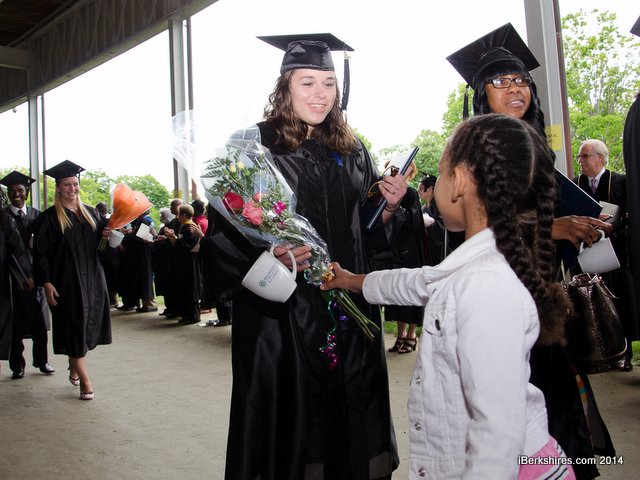 Friday was a time for celebration for the 362 students who graduated from Berkshire Community College. More photos here. Friday was a time for celebration for the 362 students who graduated from Berkshire Community College. More photos here. |
LENOX, Mass. — Sandy Robillard started on the traditional college path 29 years ago. But she didn't finish the degree program and instead raised a family. And she always felt incomplete.
Her mother, Sandy Houghtin, never even had the chance to go to college.
In the last few years, both enrolled at Berkshire Community College — Robillard to finish what she started in early education and and the retiree Houghtin because she wanted a business degree.
"It was something that when I was that age wasn't an option," Houghtin said of going back to school. "It was a goal I wanted to obtain."
The two Sandys found themselves calling each other about homework, sharing notes and books and sitting in nearly a half dozen of the same classes. Robillard's son and husband both enrolled — her son graduating last year — putting four family members and three generations on the same campus working on their education.
"It was a lot of fun," Robillard said of sitting in classes with her mother. "It was nice to be able to call each other [about the classes and homework]."
On Friday, the mother/daughter pair, who took different routes to get there, accepted their degrees on the Tanglewood stage.
They were just two of 362 students receiving degrees, including many people who took nontraditional routes or had other aspects of their lives to juggle. And it included some who followed the traditional path.
Providing opportunities at an affordable rate is what makes community colleges the best value in America, according to U.S. Rep. Richard Neal, who was the keynote speaker. Himself a graduate of Holyoke Community College, Neal credited the system for being the base of his career and said the schools serve a tremendous role in the nation's education system.
"The recession and the subsequent recovery have caused community college enrollment to soar across America," Neal said of the growing role the schools play. "The percentage of postsecondary students attending two-year colleges has doubled in 50 years. Enrollment in community colleges has jumped from 17.8 percent of college students nationwide in 1963 to 36.5 percent today."
As technology and globalization has expanded, Neal said, there is more and more information out there. He told the students to continue analyzing and look deeper into issues.
"I encourage you all here today, in your own lives, to look beyond the talking points, the one-liners and the tweeting," Neal said.
The world is much more complex than cable news often makes it out to be, he said. Nor was it ever easier. He cited Norman Rockwell's paintings as having tremendously complex images if one looks closely.
"We have gone from a 24-hour news cycle to an instantaneous news cycle where shock value, outrage an the shout-down are the sign of the times. All too often, opinion becomes a substitute for fact," Neal said. "Social media has truncated conversation.... increasingly, it seems, we embrace the argument that is yelled the loudest, or the most, instead of search for the ideas that are the best."
As Neal told the students to steer away from "the negativity," state Sen. Benjamin Downing said the students already have. With any big decision comes fear of failure, Downing said.
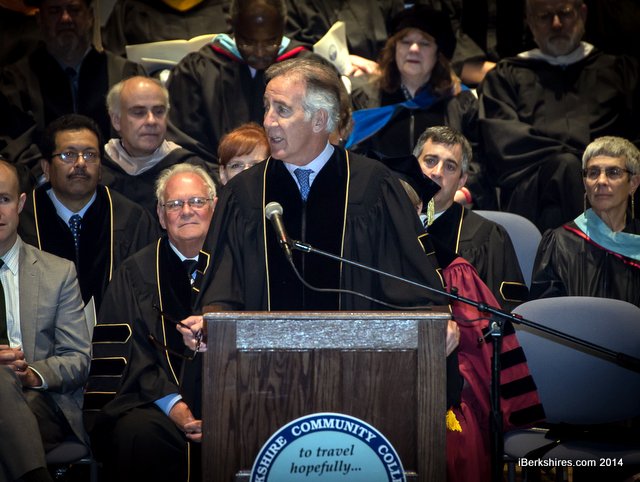 U.S. Rep. Richard Neal is a Holyoke Community College graduate and believes community colleges play an important role in American education. U.S. Rep. Richard Neal is a Holyoke Community College graduate and believes community colleges play an important role in American education. |
"There will always be those moments with great possibility but also great trepidation," Downing told the students. "You've shown the ability to dream big and take chances."
Shelby Meyers, the valedictorian, said her fellow students did take many risks and worked hard to graduate.
"Sometimes we are discouraged by finances, unplanned events, living situations illness, loss and even by other people," she said. "Yet, somehow we all found our way here today through the good and the bad and achieved the means for a brighter future."
Meyers overcame health issues and problems with finances and home life. She had nearly dropped out. But, she still became the top student on the campus.
"The key to failure is not trying. You will undoubtedly miss every chance that you don't take," Meyers said, conceding that certainly there will be aspects of life that one won't be good at. But, she told the students to keep trying things because "failure leads us to our rightful paths and oddly enough uncovers our strengths and weaknesses."
State Rep. Tricia Farley-Bouvier told the students to be proud of their accomplishments because graduating from BCC does take a lot of commitment and work.
"What we say here isn't that important. What is important is how all of you feel. And you should feel very, very proud," Farley-Bouvier said.
Mayor Daniel Bianchi listed high ranking positions BCC graduates have gone onto hold and told the students that "I have no doubt in my mind that you will join them."
Friday's ceremony, with dark clouds threatening but never breaking, was the 54th in the college's history. The college also honored Susan Pinksker, Deborah Rustay and Charles Weinstein with professor emeritus recognition.
"This day, however, is not an endpoint. On this day, it is not the arrival alone that we appreciate as we celebrate, but the journey that has brought us this far and the one we shall return to when this day is done," said President Ellen Kennedy. "Members of the Berkshire Community College's 54th graduating class, the class of 2014, congratulations."

